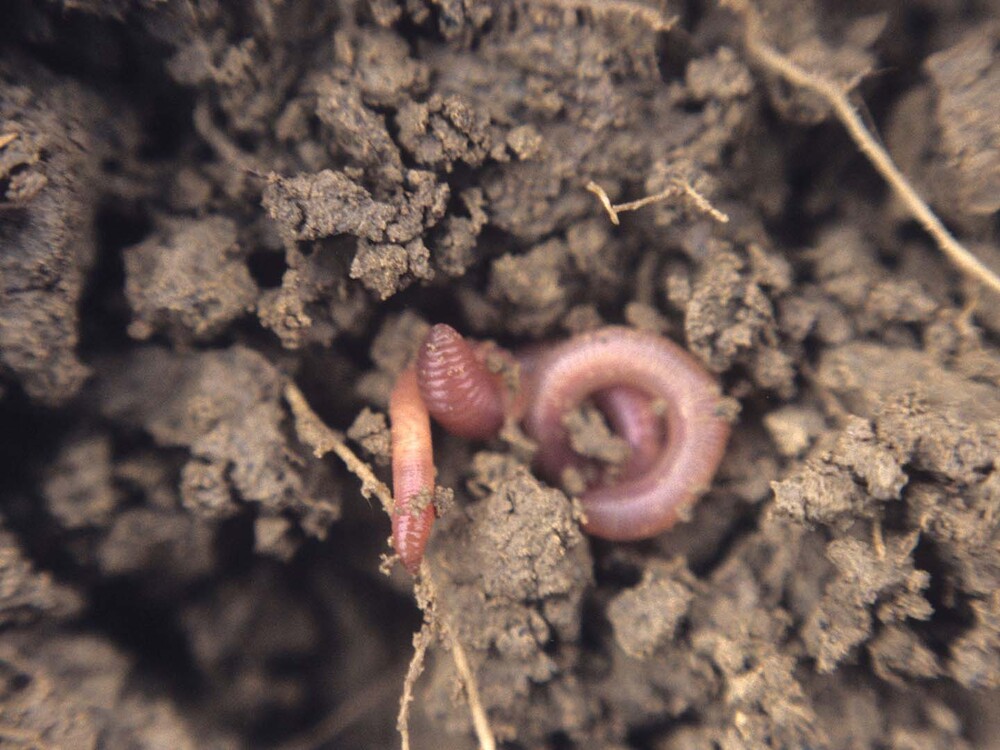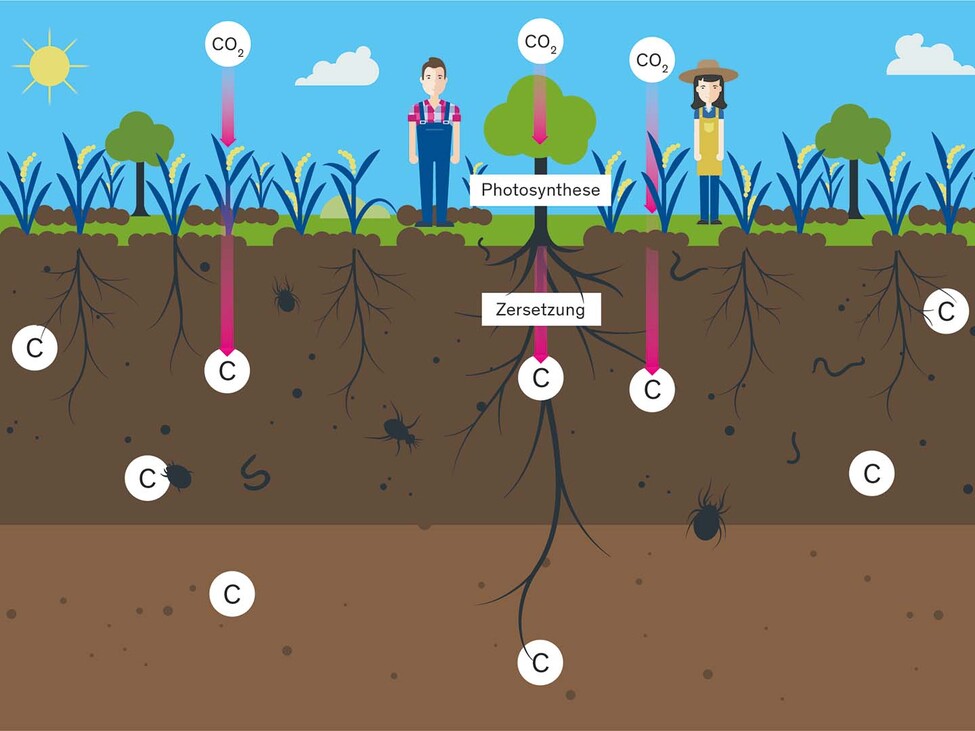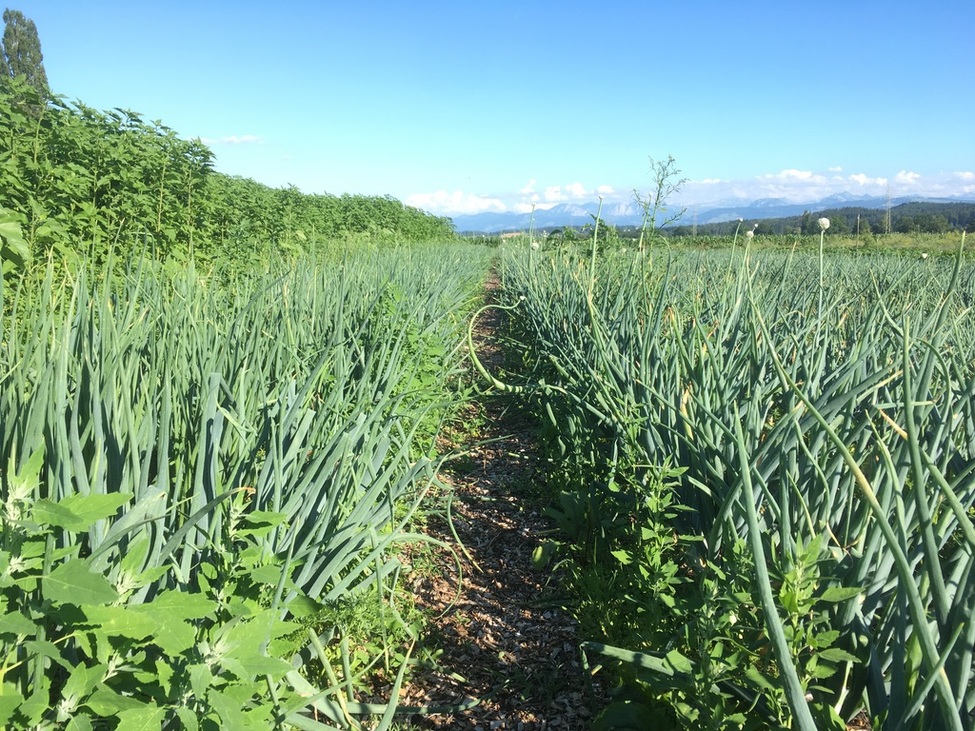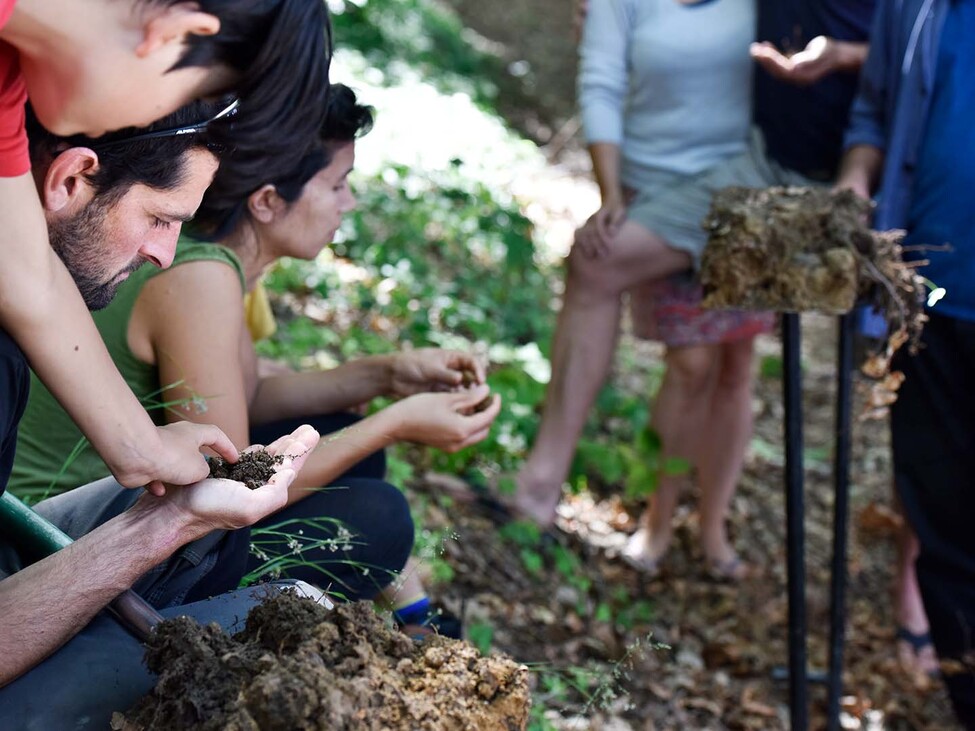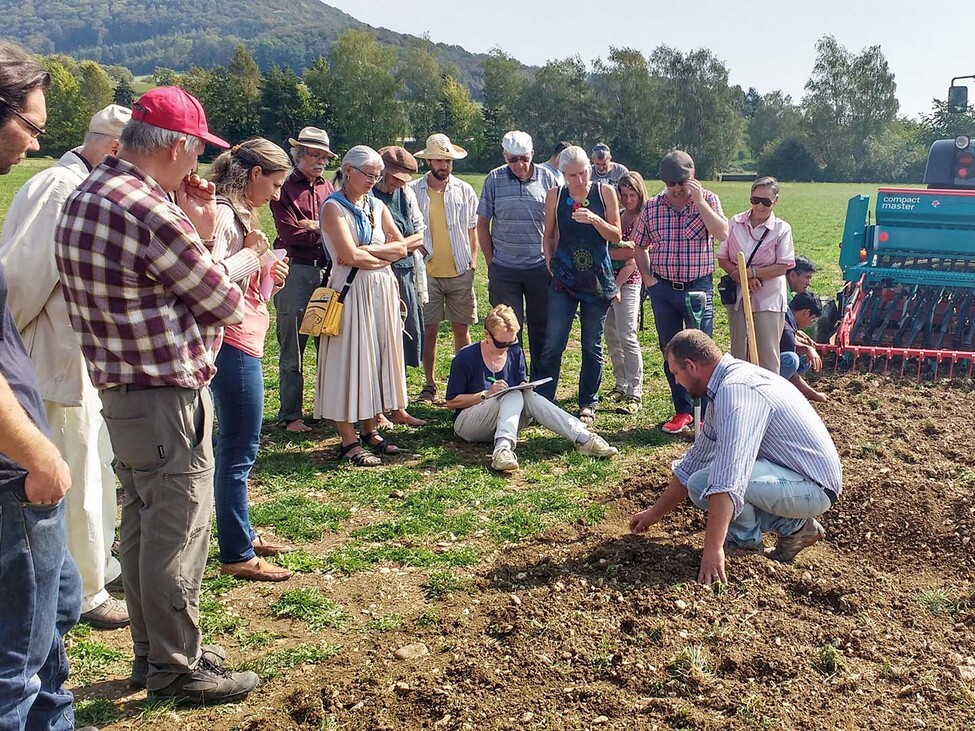Agricultural land is constantly losing humus through intensive cultivation, which reduces its fertility. Even the nutrient content of organically farmed soil is decreasing overall because the time-consuming measures for humus conservation and long-term humus accumulation are financially not feasible.
It is a vicious circle: Due to the price pressure caused by cheap imports, farmers have to farm more intensively and are forced to neglect ecological measures. As a result, agriculture is increasingly contributing to climate change. The latest IPCC special report (2019) estimates that agriculture and forestry are responsible for over 20 per cent of human-made greenhouse gas emissions. At the same time, however, farmers are directly affected by climate change, for example through prolonged droughts or heavy rainfall.
Fertile soil is a natural CO₂ sink
Agricultural soils offer great potential as a carbon sink. Soil stores three times more carbon than the atmosphere. The international 4 per 1000 initiative understands soil as a relevant CO₂ sink. It assumes that an annual, 0.4-per cent worldwide increase in soil carbon stock in the topsoil – i.e. the top 30 centimetres – can offset the global greenhouse gases caused by humans.
The carbon in soil comes, in part, from atmospheric carbon dioxide (CO₂), which plants extract through photosynthesis and store in the soil through plant roots and microorganisms. The more humus soil contains, the more carbon it can store. Soil-preserving and humus-accumulating measures increase soil organic carbon, making fertile agricultural soil a CO₂ sink. Humus-rich soils store more water and are therefore more resistant to extreme weather conditions such as droughts and heavy rainfall. This makes the soil more resilient to climate change, meaning it contributes to food security and the negative emissions urgently needed in order to achieve the 1.5 degree target.
The programme: Measures for more fertile soil
For this programme, myclimate is collaborating with Bio-Stiftung Schweiz. Selected organic or bio-dynamically producing farms in the Lake Constance region are committed to develop location-optimised activities in order to increase soil fertility. Measures include for example: the development and introduction of compost, modified crop rotation, no tillage, mixed crops or green manure. The Bio-Stiftung Schweiz supports farmers with guidance from local soil experts and an exchange platform.
Climate justice
In solidarity with farmers in developing countries and due to the "Family Farming" decade proclaimed by the UNO and FAO, myclimate is reducing the same number of CO₂ emission in an international certified carbon offset project with small farmers in Nicaragua, who also contribute to soil organic carbon accumulation through reforestation measures.

